83. Installing Windows XP
Installing/Re-installing Windows XP is a
relatively straightforward process providing you
have everything you need to hand. There is nothing
worse than being asked by the operating system set
up application for a specific driver and having to
hunt a for the relevant floppy or CD. So, to start,
you need the following.
- Windows XP CD.
- Windows XP CD Product Code Number.
- Any relevant drivers - this is not
always the case as XP does have many
drivers.However, it may be necessary to update
the driver that XP initially installs. Be
particularly careful with Modem drivers.
- Make sure that your PC can boot from
your CD-ROM.
Now to the nitty gritty!
- Boot up your pc. During
the initial boot cycle insert the
Windows XP CD into your CD-ROM.
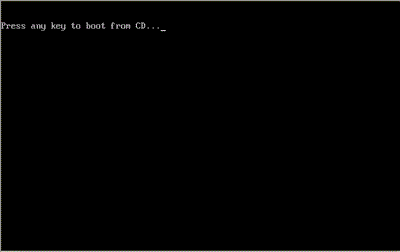
- You will see on your screen 'Press any key to boot from CD'.
- At this stage press either Enter
or any other key.
- Set up
will now automatically inspect your computer's
hardware configuration.
- After set up has
checked your hardware a blue screen will appear
with the words
'Windows set up' in the top left hand
corner.
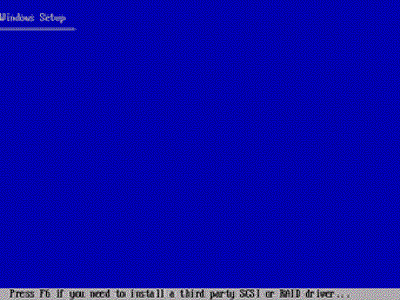
- At this stage, should you have a
RAID, SCSI or SATA drive, you will have
the option of pressing F6 to
install the third party drivers for this
hardware. If you do not have any of this
hardware installed on your pc there is no need
to press F6. XP will now
start loading files into memory.
- After all the files have been loaded into
memory the Welcome To Set Up Window
appears.
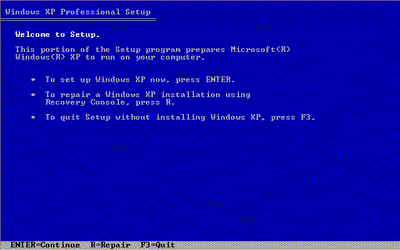
- To begin installing XP Press Enter.
- The next screen to appear is the EULA
(End user Licence Agreement) Press F8
to accept the licence or ESC if you don't want to
accept the licence agreement and want to terminate
the install.
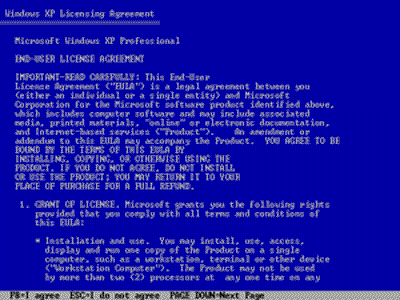
- After agreeing to the licence agreement set
up searches your hard drive for any partitions.
- The next screen shows all the partitions on
your hard drive. You may have just one or
several depending upon whether you have created
partitions prior to installing Windows XP.
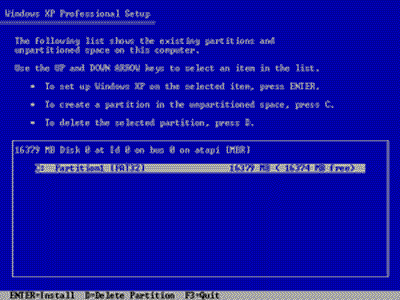
- You can select the partition
you want to install XP on. Once you have
selected the partition press Enter.
- The next window will offer to format the
partition for you. If the partition is already
formatted the option will be 'leave file
format as it is.' If it hasn't been
previously formatted then you will have the option
to either:
Format the partition using the NTFS
file system (Quick)
Format the partition using the FAT
file system (Quick)
Format the partition using the NTFS
file system
Format the partition using the FAT
files system
- It is recommended that you use the NTFS file system so select 'Format the partition using the NTFS file system'.
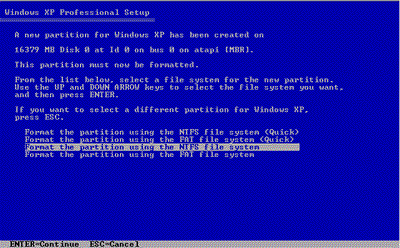
- Set up will now begin to format your hard drive.
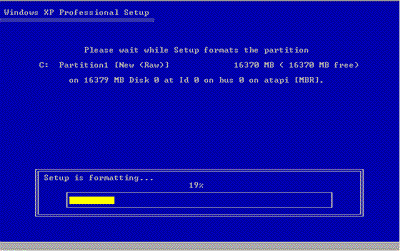
- Once the drive has been formatted windows
set up will start copying files to memory.
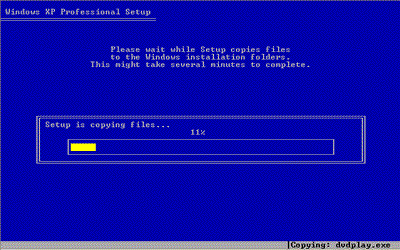
- Once the copying has been completed windows initialises your configuration and then proceeds to
reboot your machine.
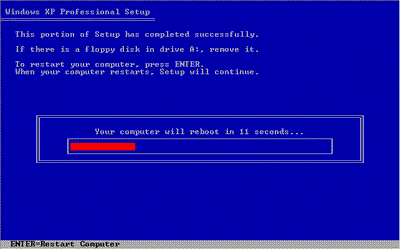
- Your system will now reboot.
- On reboot you will again be presented with
'Press any key to boot from CD' On
this occasion DO NOT press any key.
Leave well alone. Windows will then automatically
launch. If you press any key during this process you
will start the set up procedure all over again.
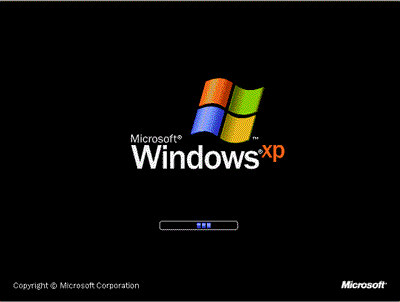
- You will now see the Windows XP
Graphical interface as windows loads.
Note: If your copy of XP does
not include Service Pack 2 the Logo will look
slightly different to the one illustrated below in
as much as it will display Windows XP Home or
Professional. As soon as you upgrade to Service Pack
2 (SP2) the Home/Professional branding will be
removed.
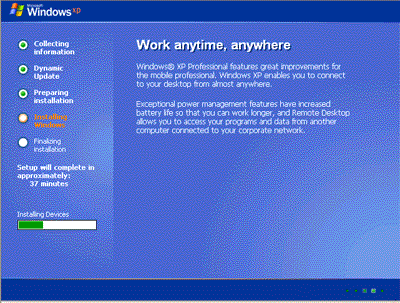
- At the next screen Windows will begin
copying files to your hard drive.
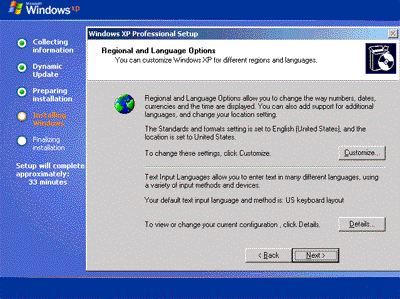
- As the files are installed on your
hard drive you will be asked to select various
options. The first to launch is the Regional and Language
Options window.
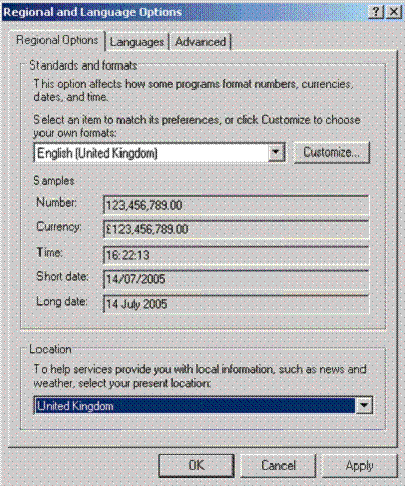
- Click the Customise button
to select your Country standards, language,
etc. Click OK when you are
satisfied with your selections.
- After you have completed that return to the
original Regional and language
Options window and click the Details
button.

- From here you can set the default
keyboard language. Click OK
when finished.
- Now click the Next button.
- The next window asks for your name
and company. Fill this in with the relevant
details.
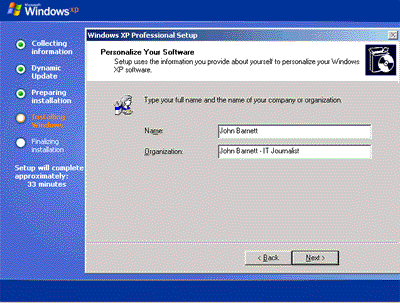
- After completing the name and company
dialogue boxes press Next.
- Now you are presented with the
Product code number screen.
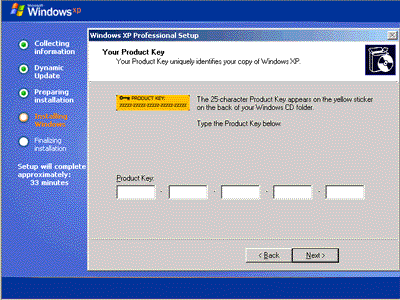
- Insert your product code
numbers in the relevant boxes. Take your time here,
as inserting the wrong number, will cause an error.
- 31/ After inserting the product code number press
Next.
- Your next screen is the Computer and
Administrator password screen.
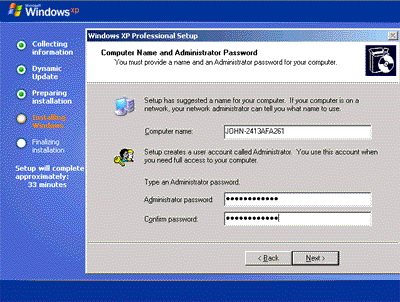
- XP usually inserts a computer name
but you can change it if you want something
different.
- Next insert the Administrator
password (you don't need to do this for XP
Home Edition) and then confirm the
password in the next dialogue box.
- Click Next to continue.
- If you have a Dial Up Modem installed you
will now be asked for the Country and area code
information. Fill this in as necessary and press
Next. Do Not worry if the Dial Up Modem screen
doesn't appear during set-up. Personally I much
prefer to set-up the Internet Connection after
Windows XP has completed it's installation.
- The Date and Time Setting
windows now appears.
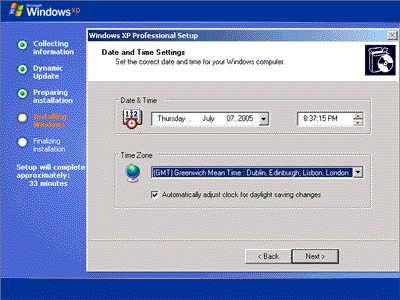
- Select your Time
Zone from the drop down time zone list and
XP will make the other adjustments.
- Finally click the Next
button.
- Windows now starts to install the
Networking part of the operating system.
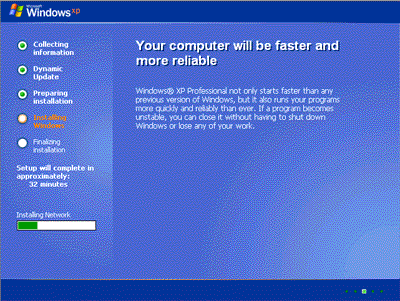
- Assuming you have a Networking Card
installed the Networking Settings window will
now pop up.
- The Typical Settings Option
should already be selected so simply press the
Next button.
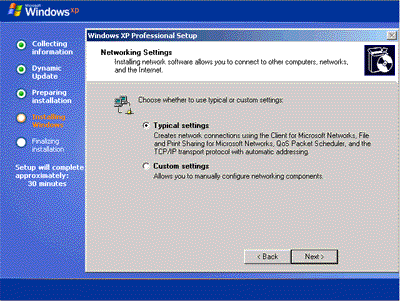
- Unless you are on a Network
or Domain you simply need to press
the Next button If you are on a
Network then click the Yes make
this computer a member of the following domain and
then click the Next button. You
may need to ask your administrator for these
details.
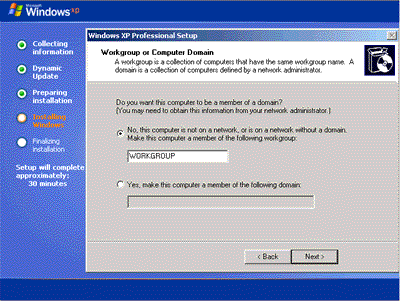
- Windows will now continue copying files.
- After a while Windows will finalise the
installation. The progress bar will show Completing
Installation followed by Installing Start menu
icons, registering Components, Saving Settings and,
finally, Removing any temporary files used.
- After finalisation Windows will again restart
your pc.
- On reboot you will again be presented with
'Press any key to boot from CD' On
this occasion DO NOT press any key.
Leave well alone. Windows will then automatically
launch. If you press any key during this process you
will start the set up procedure all over again.
- You will now see the Windows Logo
screen.

- Once Windows has loaded it will adjust your
monitors resolution. Just click OK
to continue.
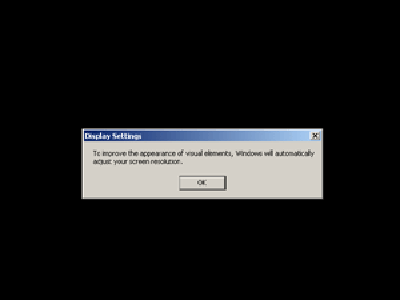
- If you are happy with the resolution change
press OK again.
- Windows now needs to apply the computer
settings so you need to be a little patience
here.
- The Welcome to Microsoft Windows
screen now appears. By clicking the
‘?’ you can get help.
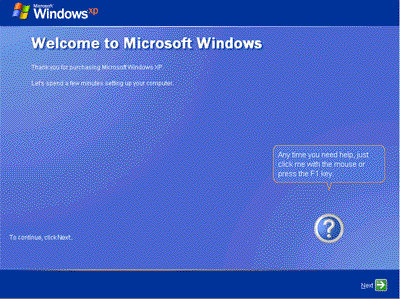
- Click the Next button to
continue.
- If you are using a copy of Windows XP with
Service Pack 2 already integrated the next
screen will ask you to enable the Windows Firewall.
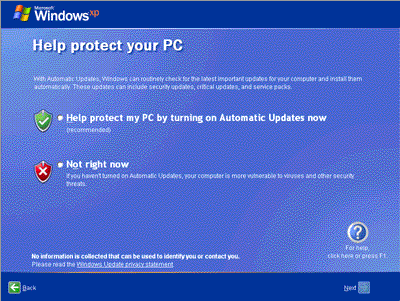
- The next screen asks you to Activate
your copy of Windows XP. You have
30 days in which to activate your copy of
Windows so I always select the No option and then
activate when I am satisfied everything is working
correctly.
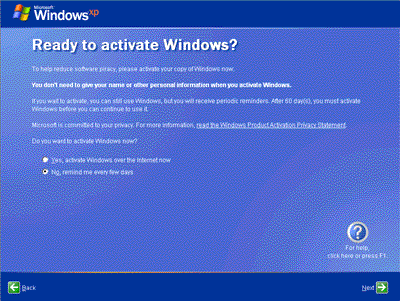
- After the Activation screen Windows XP asks
you How you will connect to the Internet.
This and the following screen may only appear if you
are using a DSL or Cable
modem. Although personally I prefer to
set-up the Internet Connection after Windows XP has
finally been installed.
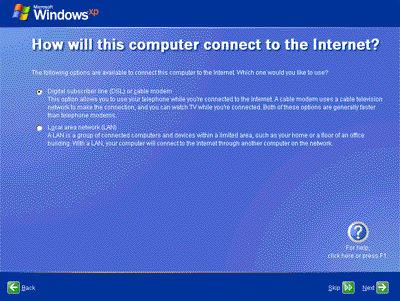
- After making your connection selection
Windows check for Internet Connectivity.
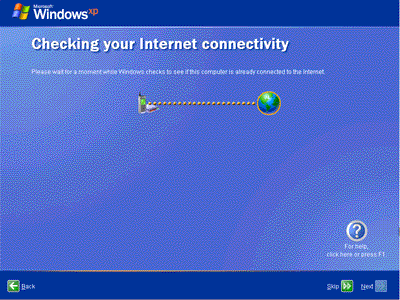
- You are now asked Who will use this
computer.
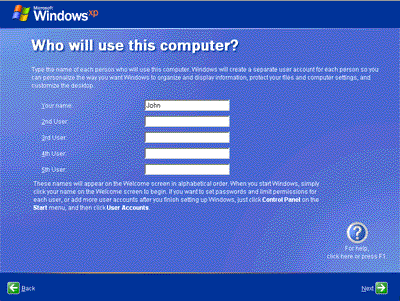
- Insert the Name(s) of the
user(s) who will be using the computer and then
press Next.
- After completing the ‘who will use
this computer’ section a thank you
screen will appear.
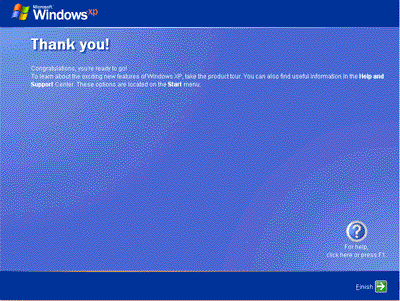
- After a while the Welcome Screen
will appear.

- Finally the Windows XP desktop
will appear in all its glory.
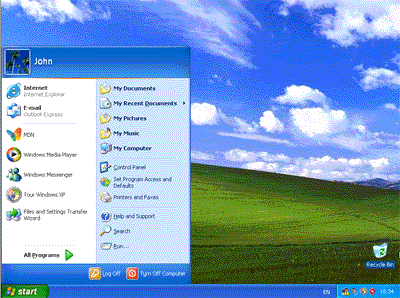
- Congratulations! You have
now successfully installed Windows XP